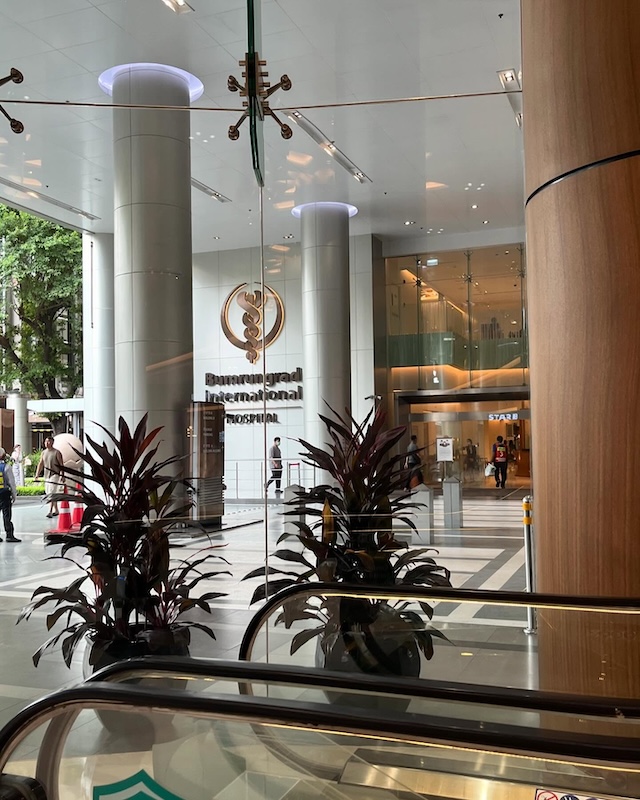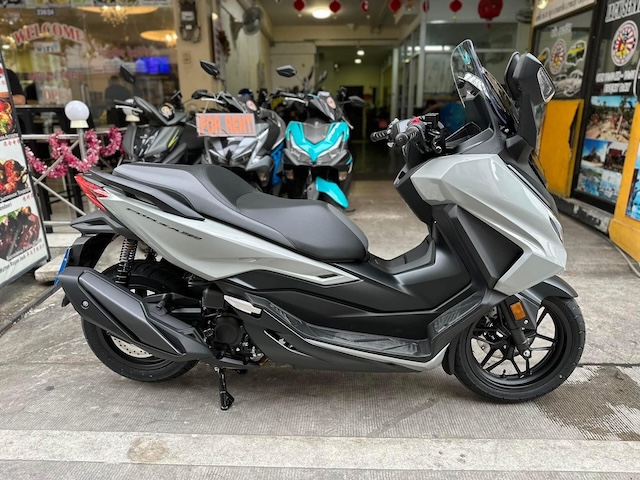Analyzing your credit card travel protection for Thailand is a crucial step before leaving. As you prepare for your trip, you’re likely wondering if the coverage from your Gold Mastercard or Visa Premier is sufficient. It’s a vital question, as many travelers mistakenly rely on these built-in protections and assume they are fully covered.
The short answer is: probably not.
This article explains why this coverage has significant limitations and how you can ensure you are properly covered to travel with peace of mind.
The Crucial Difference: Assistance vs. Insurance
To understand your card’s coverage, you must first distinguish between two types of guarantees, as specified by official sources like Visa:
- Assistance: This covers on-the-spot emergencies (like repatriation or medical expenses). It is generally included just by having the card.
- Insurance: This covers unforeseen events (such as trip cancellation or lost luggage). To benefit from it, it almost always requires you to have paid for your trip (flights, hotels) with the card.
This distinction is the primary source of confusion. As Simon Calder, travel editor for The Independent, warns, “credit card travel insurance is often advertised as a free perk, but the coverage can be patchy and never as comprehensive as a specialized policy.” Note also that coverage levels vary significantly between card tiers (e.g., a Gold card versus a Platinum or Infinite card). But even with premium cards, the guarantees are often insufficient, especially with the strict 90-day coverage limit.
Key Takeaway: The 3 Basic Conditions
According to the general terms and conditions of most providers, the guarantees apply if:
- You paid for the service with your card.
- Your trip lasts less than 90 days.
- You are more than 100 km from your home.
Limitations of Credit Card Travel Protection in Thailand
1. Medical Expense Caps Are Too Low

To put this risk into perspective, a 2024 report by Willis Towers Watson revealed that medical costs in Thailand surged by an alarming 15.2% that year, massively outpacing the country’s general inflation rate. This financial reality is confirmed by Dr. Nipa Kanchanachitra of the International Health Policy Program, who underlines that “rising medical costs in Thailand significantly outpace insurance caps, putting many travelers at financial risk.”
This is the main risk. Premium cards often cap medical expense reimbursements at around €155,000. While this figure varies between banks, it can be quickly reached in Thailand.
The real cost of care: A broken leg from a scooter accident at a private hospital in Thailand can cost up to €15,000. A medical evacuation from an island can exceed €20,000.
2. Strict Exclusions and Conditions for Scooters and Diving

The risks of riding a scooter in Thailand are severe. To illustrate, official statistics from Thailand’s Department of Disease Control show that in 2024 alone, over 14,000 people died in motorcycle-related accidents. This echoes the sentiment of Professor Somchai Viravaidya, founder of Thailand’s Population and Community Development Association, who states that “motorcycle-related accidents remain a leading cause of fatalities, necessitating stringent insurance coverage for riders.”
Renting a scooter is a common experience in Thailand, but as we detail in our complete guide to scooter rentals, it is often subject to very strict conditions from your credit card’s insurance.
It’s incorrect to say these activities are always excluded. In reality, coverage is conditional. For a scooter, insurers almost always require:
- Wearing a helmet.
- Possessing a valid international driving permit for the engine size you are riding.
- Not participating in a race or competition.
For diving, coverage often stops at a certain depth and excludes professional diving. Key advice: read the terms and conditions of your contract before you leave.
3. Impossible to Get the Required Certificate for OA/OX Visas
For long-stay visas, the authorities require a specific insurance certificate. Credit card insurance providers generally cannot issue this specific certificate, which must prove coverage of at least $100,000 USD.
Credit Card Travel Protection vs. Specialized Insurance
Guarantees vary by contract, so these figures are indicative. For precise details, always refer to your card issuer’s official policy. If you are considering a specialized travel insurance instead, our Heymondo Promo Code 2026 explains how to get an immediate 5% discount. Here is a general overview:
| Coverage | Premium Card (Premier/Gold) | Specialized Travel Insurance |
|---|---|---|
| Medical Expense Cap | ~ €155,000 | €500,000 to unlimited |
| Civil Liability | ~ €1,500,000 | ~ €4,500,000 and higher |
| Baggage Insurance | ~ €850 per bag (with a deductible) | Higher caps, lower deductibles |
| Cancellation Insurance | ~ €5,000 / year (restricted reasons) | Higher caps, more covered reasons |
| Claim Filing Deadlines | Often very short (ex: 5 days) | Generally more flexible |
| Visa Requirements Compliance | ❌ (Cannot issue official certificates) | ✅ (Provides required certificates) |
Compare travel insurance options
The Claim Process: What to Expect
Making a claim requires strict adherence to procedures. If an incident occurs, you must contact your card’s assistance service immediately—before taking any other steps, unless it’s a life-threatening emergency. They will open a case and guide you. Be prepared to provide extensive documentation, such as detailed medical reports, police statements, and original receipts, all within tight deadlines.
Frequently Asked Questions (FAQ)
Should I call the assistance service before paying at the hospital?
Yes, absolutely. Except in a life-threatening emergency, you must contact the assistance number on the back of your card BEFORE incurring any expenses. This is a critical step to ensure direct payment or proper reimbursement.
What documents are needed for a cancellation or baggage claim?
Be prepared to provide extensive proof: a detailed medical certificate in case of illness, a declaration of theft/loss from the airline, original receipts for your purchases, etc. Thoroughness and promptness are essential.
Does the coverage extend to my family?
Yes, it generally covers your spouse and children under 25 traveling with you. However, the coverage caps are not multiplied; they apply to the entire family for a single event.
This is a major limitation. For better protection, especially with children, we strongly recommend reading our guide on Thailand family travel insurance.
Conclusion: Don’t Take Risks, Travel Well-Insured
Your credit card’s insurance coverage in Thailand is a useful but incomplete safety net. As Maria Hernandez, senior analyst at the Global Travel Insurance Association, cautions, “many travelers underestimate their risks and forego specialized insurance policies, which could lead to significant financial burdens during emergencies.” Faced with limited caps, specific exclusions, and strict procedures, a specialized travel insurance policy is not a luxury but an essential investment for complete peace of mind.
Compare Travel Insurance Options
🔄 Last updated on January 15, 2026
